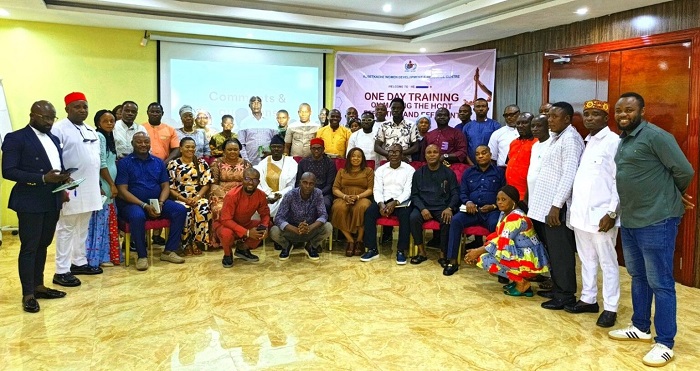An expert in Natural Resource Governance, Dr Mike Uzoigwe, has called for the full implementation of the Petroleum Industry Act (PIA) for the development of oil communities in the Niger Delta.
Uzoigwe made the appeal during a training for community representatives under the Host Community Development Trust (HCDT), held in Port Harcourt on Wednesday, April 30, 2025.
He noted that five years after the PIA was enacted, funding under the HCDT framework for member communities had yet to be fully implemented.
He attributed the slow pace of implementation to oil companies’ failure to remit funds, ongoing litigations, internal community disputes, and regulatory challenges, among other factors.
According to him, these challenges have made it difficult to properly assess the effectiveness of HCDT implementation in host communities.
Uzoigwe also expressed concern that several communities were yet to establish HCDTs, which are essential for accessing funds designated for local development.
“Fortunately, there are communities that have successfully leveraged the HCDT to advance development in their localities.
“However, we want every host community to access these funds to accelerate development in their respective areas and contribute to the broader transformation of the Niger Delta,” he added.
Uzoigwe urged host communities to familiarise themselves with the provisions and regulations of the PIA to enable them to fully benefit from the Act.
Also speaking, Dr Emem Okon, Executive Director of Kebetkache Development and Resource Centre, explained that the training was organised for HCDT communities in Akwa Ibom, Bayelsa, Delta, Imo, and Rivers states.
According to her, the objective of the training was to equip participants with the knowledge and skills necessary to understand the PIA’s provisions, conduct needs assessments and undertake community development planning.
“We examined how the HCDT can be made effective and efficient in utilising the three per cent operational cost allocation for community development projects, as stipulated in the PIA.
“This allocation is structured as follows: 75 per cent for project execution, 20 per cent for savings, and five per cent for administrative costs.
“HCDT members are responsible for identifying and prioritising community needs through a transparent, sincere, and people-centred decision-making process in managing these funds,” Okon explained.
She encouraged host communities to engage actively with various stakeholders, including women, youth, farmers, and community leaders, to identify development projects that reflect the genuine needs of their communities.



